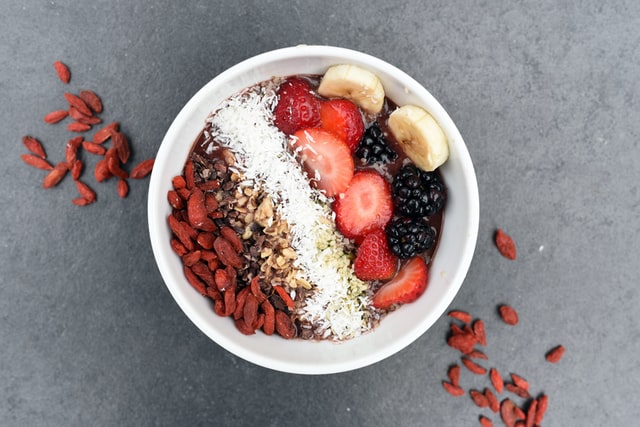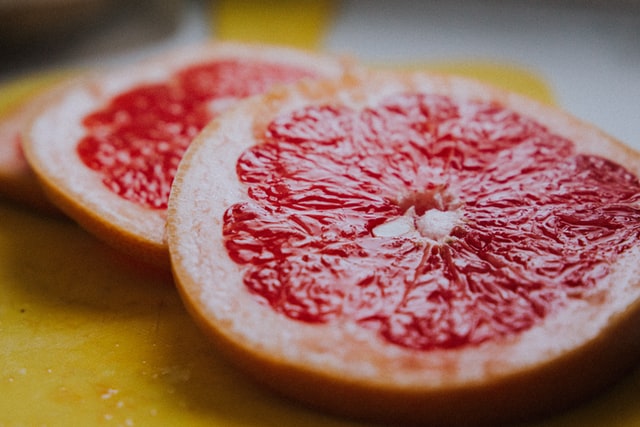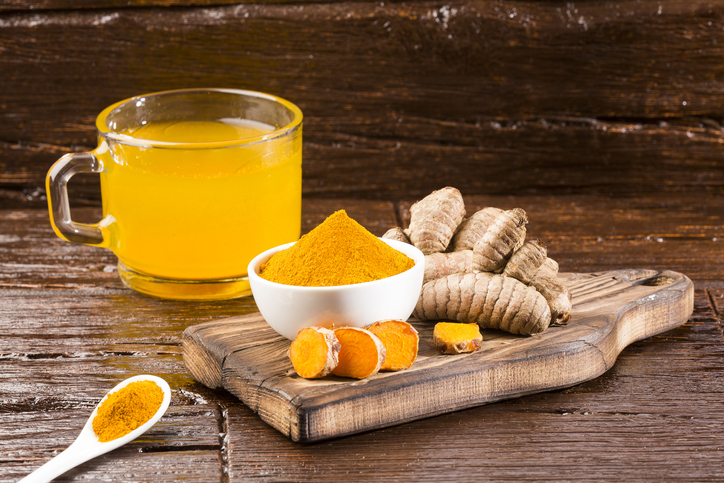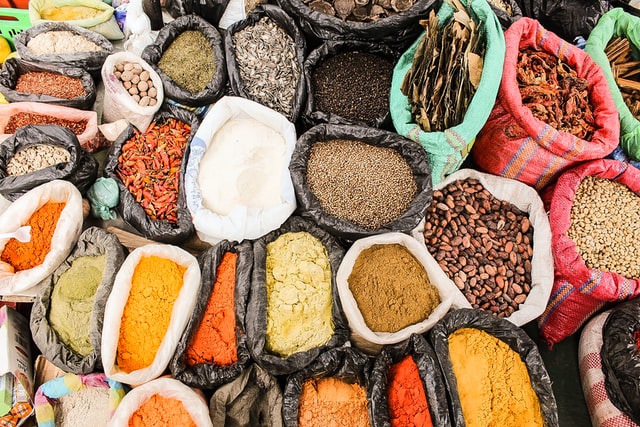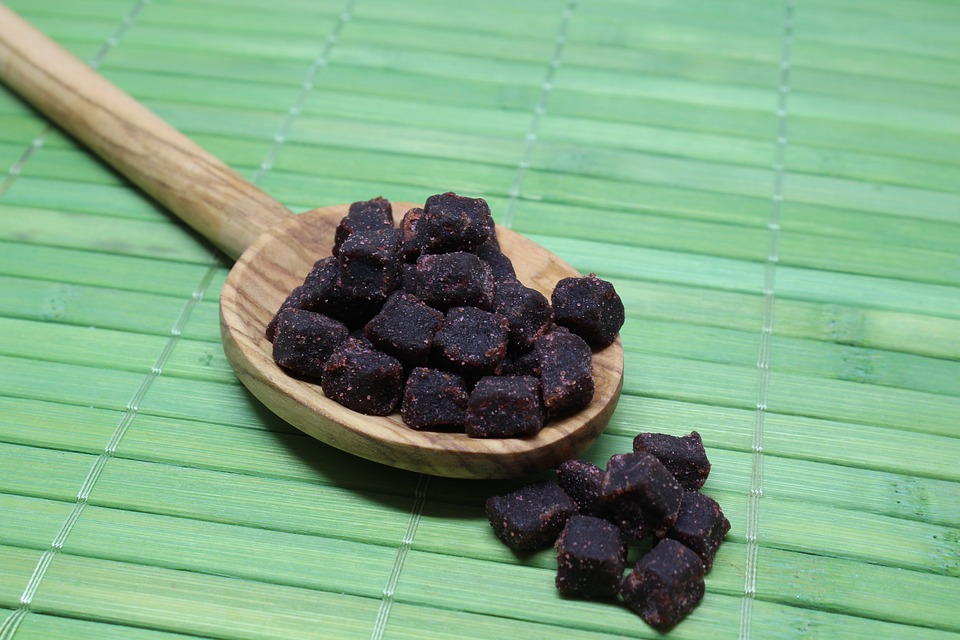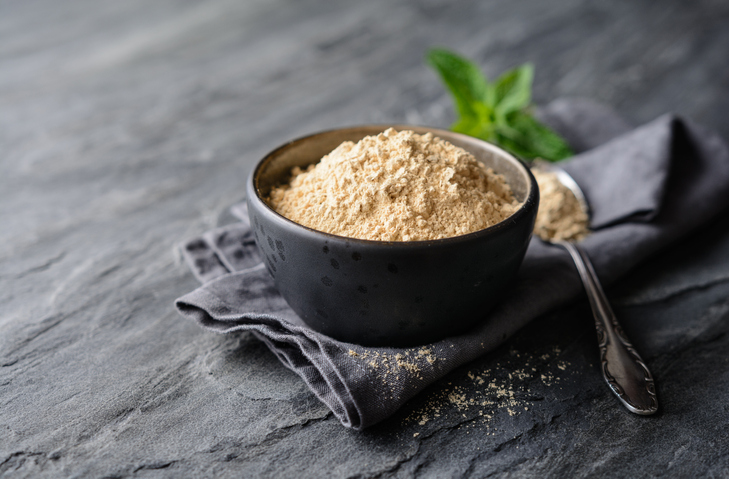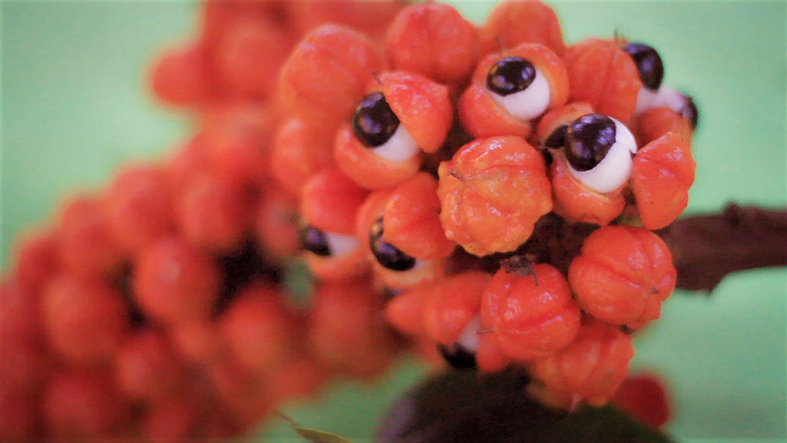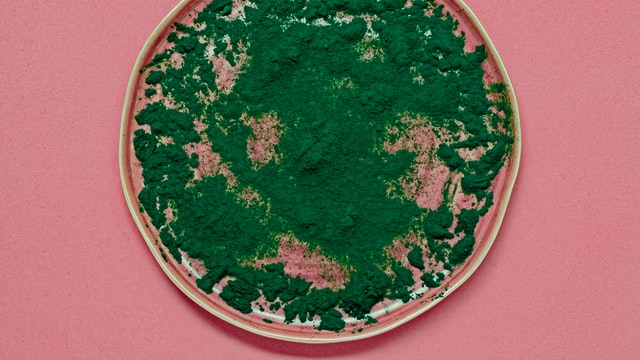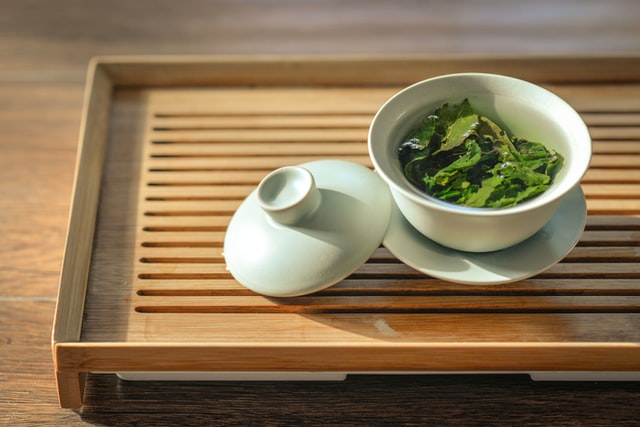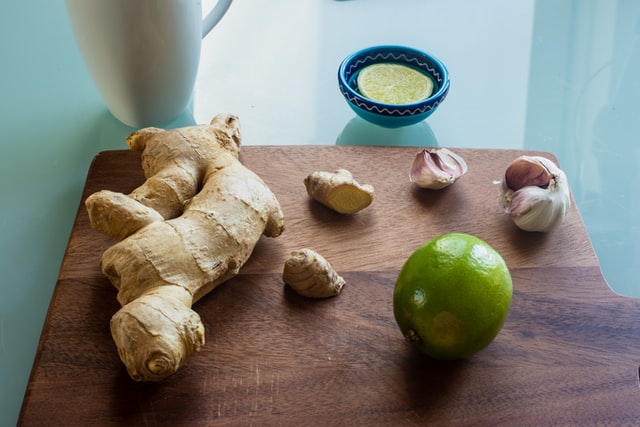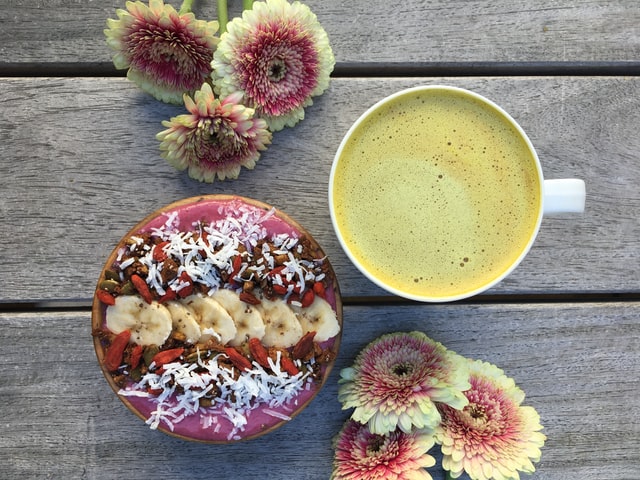Goji berry, the fruit of the medicinal plant Lycium barbarum, has been used for over 2,000 years in traditional Chinese medicine. This "superfruit" with anti-oxidant properties is rich in polysaccharides, trace elements (selenium, calcium) and vitamins (vitamins B, C and beta carotene), thus explaining its growing presence on the food supplement market.
It is now widely known for its multiple actions, notably on oxidative stress, the nervous system, high blood pressure and other unsuspected virtues.
Focus on the 7 medicinal virtues of this super food, the Goji berry
Anti-aging action
During the ageing process, a pro/antioxidant imbalance progressively
sets in within the body, which can lead in the long term to numerous
pathologies such as cancers or neurodegenerative diseases (Alzheimer's,
Parkinson's) 1.
The active ingredient in the goji berry helps to
restore the body's antioxidant capacities, which are altered with age.
This is thanks to the stimulation of antioxidant enzymes which enable us
to fight against oxidative stress on the one hand, but also against
certain age-related diseases! 2,3.
Prevents cardiovascular disease and blood pressure
Diabetes and cholesterol are two major risk factors for cardiovascular disease. A study carried out on 37 diabetic subjects showed that the consumption of Goji berry capsules twice a day for 3 consecutive months reduced glycaemia and insulin levels and improved glucose tolerance 4. In addition, Goji berries improve the lipid profile, notably by lowering total cholesterol and triglycerides and increasing levels of cardioprotective "good cholesterol" (HDL-cholesterol) 5,6. Finally, the consumption of Goji berries reduces blood pressure and thus limits the risk of high blood pressure, thus conferring cardioprotective properties to these fruits 7.
Strengthens the immune system
Goji berries have immune system stimulating properties: they promote the synthesis and activation of immune cells such as T cells and the production of cytokines, inflammatory proteins that contribute to the immune system 8,9,10. Thus, the consumption of Goji berries strengthens the immune system and allows for a better fight against diseases.
Protects against male infertility
With age and due to certain pathologies such as diabetes, erectile dysfunction and fertility problems can occur. Consuming these berries not only increases sperm quality and libido, but also protects against decreased sperm production through its antioxidant properties11,12. Consumption of Goji berries could therefore also prevent, or at least mitigate, male infertility.
Preserves visual acuity
As we age, the cones of the eye, which are components of the retina that allow us to perceive colours, deteriorate. This leads to a decrease in visual acuity, which is a widespread problem that considerably reduces quality of life.
The beta carotene in Goji is a precursor of vitamin A, which is known to improve vision. Consuming several berries a day can limit the degeneration of the cones of the eye and thus delay the onset of vision diseases such as retinitis. 13
Helps maintain healthy skin
Thanks to its anti-oxidant properties, Goji berries reduce the skin damage caused by various stresses on a daily basis. In fact, drinking Goji juice on a daily basis protects the skin from UV radiation 14 and increases the survival of cells in response to mechanical stress (friction, cold, sweat. . . ) 15. Goji therefore helps to preserve a healthy, resistant and healthy skin without brown spots!
Protects the nervous system
Studies carried out on sportsmen have shown that the consumption of Goji gives a feeling of well-being, reduces fatigue and improves endurance and sports performance16. Goji is therefore a medicinal plant with innumerable virtues, modulating many physiological processes. But it also has some side effects such as the risk of developing photosensitivity, particularly in people who are allergic to solanaceous plants (tomatoes, potatoes, aubergines, peppers, etc. ). So how should they be consumed? At what dose? And in what form? - Goji berries: most goji berries that can be found in Asian grocery shops or supermarkets contain high levels of pesticides. It is therefore preferable to consume organic Goji berries in courses of 2 to 3 months twice a year at a dose of 20 to 30g per day. - Goji juice: It is possible to find Goji juice, which has the advantage of being preservative-free and unpasteurised (not irradiated). However, the daily portion depends on the concentration of Goji in the juice. - Food supplements: many Goji capsules are currently on the market. The daily intake also varies here, depending on the concentration of the product. Goji is thus part of the family of medicinal plants that has been widely studied. It is an important source of active ingredients with antioxidant properties. It is therefore important not to hesitate to consume it on a regular basis in order to benefit from its multiple medicinal virtues with health and beauty benefits!
Bibliography
- Cabello-Verrugio C, Simon F, Trollet C, Santibañez JF. Oxidative Stress in Disease and Aging: Mechanisms and Therapies 2016. Oxid Med Cell Longev2017;2017.
- Yi R, Liu X, Dong Q. A Study of Lycium Barbarum Polysaccharides (LBP) Extraction Technology and Its Anti-Aging Effect. Afr J Tradit Complement Altern Med2013;11:171-174.
- Tang T, He B. Treatment of D-Galactose Induced Mouse Aging with Lycium Barbarum Polysaccharides and Its Mechanism Study. Afr J Tradit Complement Altern Med2013;11:12-17.
- Cai H, Liu F, Zuo P, Huang G, Song Z, Wang Tet al. Practical Application of Antidiabetic Efficacy of Lycium barbarum Polysaccharide in Patients with Type 2 Diabetes. Med Chem2015;11:383–390.
- Guo X, Li Z, Cai H, Li D. The effects of Lycium barbarum L. (L. barbarum) on cardiometabolic risk factors: a meta-analysis of randomized controlled trials. Food Funct2017;8:1741–1748.
- Yang S, Si L, Fan L, Jian W, Pei H, Lin R. Polysaccharide IV from Lycium barbarum L. Improves Lipid Profiles of Gestational Diabetes Mellitus of Pregnancy by Upregulating ABCA1 and Downregulating Sterol Regulatory Element-Binding Transcription 1 via miR-33. Front Endocrinol (Lausanne)2018;9.
- Zhang X, Yang X, Lin Y, Suo M, Gong L, Chen Jet al. Anti-hypertensive effect of Lycium barbarum L. with down-regulated expression of renal endothelial lncRNA sONE in a rat model of salt-sensitive hypertension. Int J Clin Exp Pathol2015;8:6981-698
- Chang RC-C, So K-F. Use of Anti-aging Herbal Medicine, Lycium barbarum, Against Aging-associated Diseases. What Do We Know So Far? Cellular and Molecular Neurobiology2008;28:643-652.
- Bo R, Sun Y, Zhou S, Ou N, Gu P, Liu Zet al. Simple nanoliposomes encapsulating Lycium barbarum polysaccharides as adjuvants improve humoral and cellular immunity in mice. Int J Nanomedicine2017;12:6289-6301.
- Gong Y, Wu J, Li S-T. Immuno-enhancing effects of Lycium ruthenicum Murr. polysaccharide on cyclophosphamide-induced immunosuppression in mice. Int J Clin Exp Med2015;8:20631-20637.
- Shi G-J, Zheng J, Wu J, Qiao H-Q, Chang Q, Niu Yet al. Beneficial effects of Lycium barbarum polysaccharide on spermatogenesis by improving antioxidant activity and inhibiting apoptosis in streptozotocin-induced diabetic male mice. Food & Function2017;8:1215-1226.
- Shi G-J, Zheng J, Wu J, Qiao H-Q, Chang Q, Niu Yet al. Protective effects ofLycium barbarumpolysaccharide on male sexual dysfunction and fertility impairments by activating hypothalamic pituitary gonadal axis in streptozotocin-induced type-1 diabetic male mice. Endocrine Journal2017;64:907–922.
- Li S, Liu N, Lin L, Sun E-D, Li J-D, Li P-K. Macular pigment and serum zeaxanthin levels with Goji berry supplement in early age-related macular degeneration. Int J Ophthalmol2018;11:970-975.
- Reeve VE, Allanson M, Arun SJ, Domanski D, Painter N. Mice drinking goji berry juice (Lycium barbarum) are protected from UV radiation-induced skin damage via antioxidant pathways. Photochem Photobiol Sci2010;9:601–607.
- Zhao H, Alexeev A, Chang E, Greenburg G, Bojanowski K. Lycium barbarum glycoconjugates: effect on human skin and cultured dermal fibroblasts. Phytomedicine2005;12:131–137.
- Amagase H, Farnsworth NR. A review of botanical characteristics, phytochemistry, clinical relevance in efficacy and safety of Lycium barbarum fruit (Goji). Food Research International2011;44:1702–1717.

